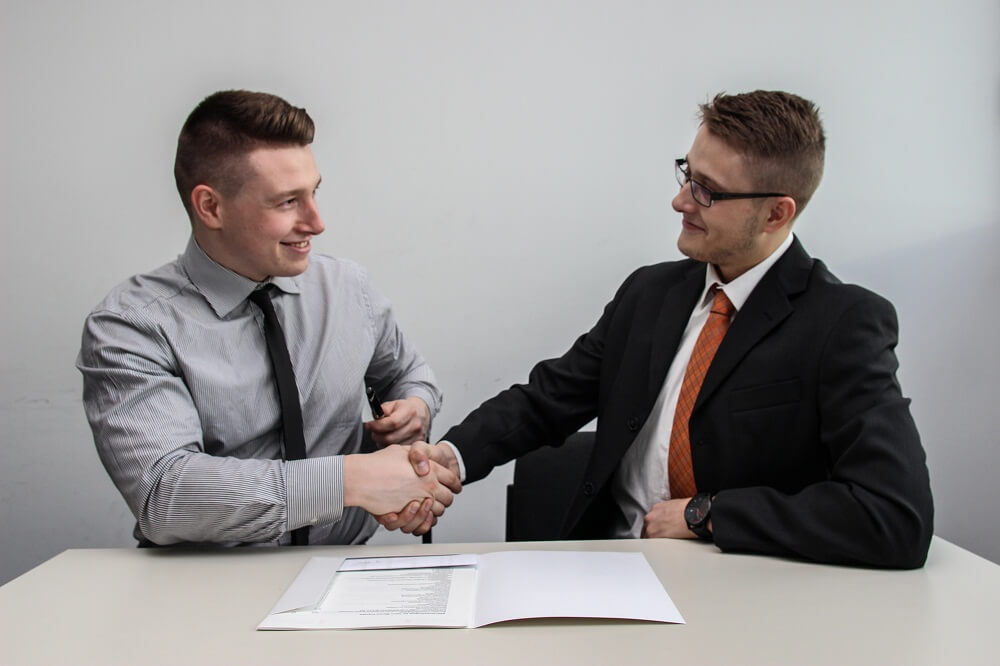Are you preparing for a job interview? If so, you’re likely doing practice for your interview to ensure that you make the best impression. Whether it’s your first or tenth, it’s important to practice ahead of time. But even if you feel confident about your abilities and know what to expect in the interview itself, there’s one more important factor to consider: practicing.
The best way to do that is by practicing beforehand. By practicing beforehand, you can give yourself the best chance of acing your interview and landing the job.
Here are 10 ways to practice for your interview:

1- Research the Company
The first step to any good interview is research. But you’re not just researching the company’s products or services; you’re researching the company itself. It means learning about the company’s history, culture, values, and goals.
The more you know about the company, the better you’ll be able to answer questions about it in the interview. Learn about the company’s history, its mission statement, and what they are looking for in a candidate. It will help you prepare questions to ask in the interview and show that you’re interested in the company.
2- Practice Your Answers
Once you’ve done your research, it’s time to practice your answers to common interview questions. You have to prepare to answer the common interview questions, https://prepmycareer.com/what-do-you-enjoy-doing-in-your-spare-time/ about it before meeting your interviewers. You have to practice your responses to sound natural and come off as confident.

Don’t memorize your answers, but think about how you would respond to questions such as “Tell me about yourself,” “What are your strengths and weaknesses?” “Why are you interested in this position?” and “What can you bring to the company?” It will help you feel more confident and prepared when you’re actually in the interview.
Related Reading:
Common Job Interview Questions
3- Rehearse Your Body Language
In addition to preparing what you’re going to say, it’s also essential to focus on how you’re going to say it. Body language is a critical part of any interaction, including job interviews; practicing it can help you come across as confident, relaxed, and professional.
Make sure you make eye contact, sit up straight, and keep your hands clasped before you or resting comfortably at your sides. Make sure you’re making eye contact, smiling, and sitting straight. It will help you come across as confident and engaged, which are qualities employers look for.
4- Practice Your Handshake
There is a lot to be surveyed from a person’s handshake. A firm handshake indicates confidence, while a weak one can make you seem nervous. Practice with a friend or family member to perfect your grip and make sure you’re making eye contact when you shake someone’s hand.

Practice shaking hands with a friend or family member ahead of time to get a feel for it and make sure you’re not coming across as too aggressive or too weak. Make sure you practice knowing how to do it correctly: A firm handshake is a sign of confidence, so it’s essential to make sure you have one.
5- Know Your Resume Inside and Out
This may seem like a no-brainer, but you’d be surprised how many people don’t know their resumes well. To properly sell yourself to potential employers, you need to know your resume inside and out. Before your interview, take the time to review your resume to be prepared to answer any questions about it. If there are any discrepancies or areas you’re unsure about, now is the time to fix them.
Be ready to talk about any and all experiences listed on your resume, even if they don’t seem relevant to the job you’re applying for. If interviewer asks about something that isn’t on your resume, be honest and explain why it wasn’t included.
6- Come Prepared with Questions to Ask the Interviewers
In addition to preparing answers to common interview questions, it’s also a good idea to come up with a few questions to ask the interviewer. It will show that you’re interested in the role and company, and it can give you some insight into whether or not the job is a good fit for you. It shows that you’re interested in the role and company, and it also allows you to learn more about what they’re looking for.
7- Know Your Weaknesses to Practice for your Interview
We all have them, so there’s no use in trying to hide them. Being honest about your weaknesses can make you likable and relatable to potential employers. When preparing for your interview, take the time to think about your weaknesses and how you can spin them into positive attributes. We all have them, so there’s no use in pretending that you don’t.
The key is to know what they are and be prepared to address them in the interview. If you’re not sure what your weaknesses are, ask a friend or family member for their honest opinion. Then, practice talking about your weaknesses in a way that frames them in a positive light. For example, “I tend to be a perfectionist, but I’ve learned to use that by double-checking my work and catching errors that others might miss.”
8- Mock Interviews With a Friend or Family Member
This is one of the best ways to practice for an upcoming interview. Have a friend or family member ask you typical interview questions as if you were in an actual interview, and then take the time to answer them thoughtfully and honestly.

You can even role-play different scenarios, such as being interrupted during your answer or getting thrown off by a question you weren’t expecting. Have a friend or family member ask you common interview questions and do your best to answer them. It will help you get used to thinking on your feet and responding to questions under pressure.
9- Read Aloud Practice
One way to practice for your interview is to read aloud. It helps you get used to hearing your voice and speaking with confidence. It also allows you to practice articulating your answers clearly. Reading aloud can help improve your pronunciation, enunciation, and pacing during an interview.
Find a quiet place to practice, and try reading aloud from a favorite book or article. Don’t worry if you make a mistake- keep practicing until you get it right.
10- Mirror Practice
Another way to practice for your interview is to stand in front of a mirror and talk to yourself. It may seem silly, but it’s a great way to get comfortable with how you look and sound when speaking. It also helps you see your body language and facial expressions to ensure you’re conveying the right message. Record yourself answering common interview questions and watch how you come across them on video.
Do your gestures match what you’re saying? Are you making eye contact? Are you slouching or fidgeting? You can make sure that you’re coming across as confident and competent by paying attention to these things.
Conclusion
Practicing for your interview is one of the best things you can do to increase your chances of success. By preparing answers to common questions, practicing your delivery, and coming prepared with questions of your own, you’ll be able to make a great impression and give yourself the best chance of landing the job.





